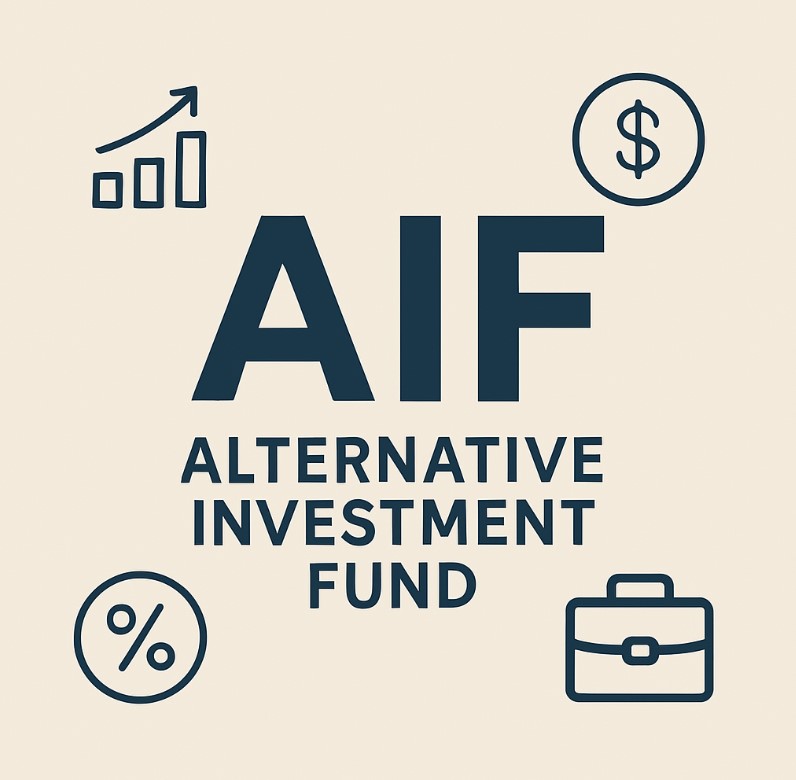
Maximizing Returns: How AIFs Can Benefit Your Investment Portfolio
Wanna earn more? The world of alternative investments is rapidly evolving, and one avenue that's gaining traction among sophisticated investors is Alternative Investment Funds (AIFs). With the right strategy, AIFs offer investors an opportunity to go beyond the limits of traditional investment avenues, providing superior returns and enhancing portfolio diversification. Let's explore how AIFs can help you maximize your returns.
With AIFs, you’re not just investing in assets – you're gaining access to high-growth opportunities, tailored strategies, and enhanced risk management. It’s time to take your portfolio to the next level and unlock the potential for superior returns.
What Are AIFs? A Closer Look at Alternative Investment Funds
Alternative Investment Funds (AIFs) are pooled investment vehicles designed to gather capital from high-net-worth individuals (HNIs) to invest in assets outside traditional stocks, bonds, and cash. These funds often focus on private equity, venture capital, hedge funds, real estate, and commodities, offering an exciting opportunity for investors to explore high-growth markets and achieve superior returns.
1. Diversification Beyond Traditional Assets 🧳
One of the most significant benefits of investing in AIFs is diversification. Traditional investments like stocks and bonds tend to rise and fall together, increasing market volatility. AIFs invest in a variety of assets, such as real estate, private equity, and commodities, which often move independently from the stock market. This means that by including AIFs in your portfolio, you can reduce risk and enjoy more stable returns, regardless of market fluctuations.
2. Access to High-Growth Opportunities 📈
AIFs provide exclusive access to high-growth investment opportunities typically unavailable to retail investors. From emerging tech startups to large-scale real estate developments, AIFs open the door to lucrative sectors with the potential for high returns. For example, venture capital AIFs often invest in early-stage companies poised for significant growth, while real estate funds target commercial properties that promise long-term appreciation.
3. Exclusive Investment Opportunities 💎
AIFs are reserved for accredited investors, providing access to markets and opportunities that aren’t typically available through public channels. Whether it's distressed assets, emerging technologies, or niche real estate projects, AIFs allow you to invest in exclusive deals that could yield better returns compared to traditional options. These investments are typically available only to a select group, ensuring that you can access opportunities that are far beyond the reach of the average investor.
4. Tailored Investment Strategies 🎯
Unlike traditional mutual funds or ETFs, AIFs offer customized investment strategies designed to meet the specific goals of their investors. Fund managers leverage their expertise and market insights to craft bespoke portfolios that maximize returns while keeping your risk profile in mind. This level of flexibility allows you to align your investments with your financial goals—whether you're looking for growth, income, or capital preservation.

5. Enhanced Risk Management 🔒
While AIFs may carry higher risks compared to traditional investments, their risk management strategies are designed to mitigate potential losses. Fund managers use tools like hedging, diversification, and leverage to ensure that any downturns are manageable. Whether through investing in undervalued assets or hedging against market fluctuations, AIFs help protect your investment while targeting higher returns.
6. Tax Benefits 💰
Another advantage of AIFs is the tax benefits they offer. Depending on the structure of the fund and the assets it invests in, certain AIFs provide favorable tax treatment on capital gains. For example, some AIFs structured as trusts may offer tax-efficient capital gains, which can be reinvested for greater returns. Furthermore, long-term capital gains tax on AIF investments is often more favorable than that on traditional stock investments, helping you maximize your after-tax returns.
7. Customization and Control Over Your Investments ⚙️
With AIFs, you get direct exposure to specific sectors or strategies, offering more control over your investment. Whether you’re interested in high-growth startups, commercial real estate, or commodity-focused funds, AIFs allow you to align your portfolio with your investment philosophy. This control ensures that your portfolio is specifically tailored to meet your financial goals and risk tolerance, providing a more personalized investment approach.
8. Performance Tracking and Transparency 📊
AIFs often provide regular updates on their performance, allowing you to track your investments over time. These funds typically offer detailed reports that include insights into underlying investments, strategies, and returns. With the increased transparency provided by AIFs, you can make informed decisions, adjust your strategies as necessary, and stay on top of your portfolio’s performance.
Conclusion: Unlock the Full Potential of Your Portfolio 🚀
For high-net-worth individuals seeking to maximize returns and diversify their investment portfolios, Alternative Investment Funds (AIFs) represent a compelling opportunity. Offering access to exclusive markets, tailored investment strategies, and higher-than-average returns, AIFs are designed to enhance your portfolio and help you achieve your financial goals.
However, before diving into AIFs, it's important to assess your financial objectives and risk tolerance. With the right AIF manager, these funds can become an integral part of your investment strategy, offering a robust way to unlock the full potential of your portfolio.
Ready to unlock the potential of alternative investments and boost your portfolio's growth?
